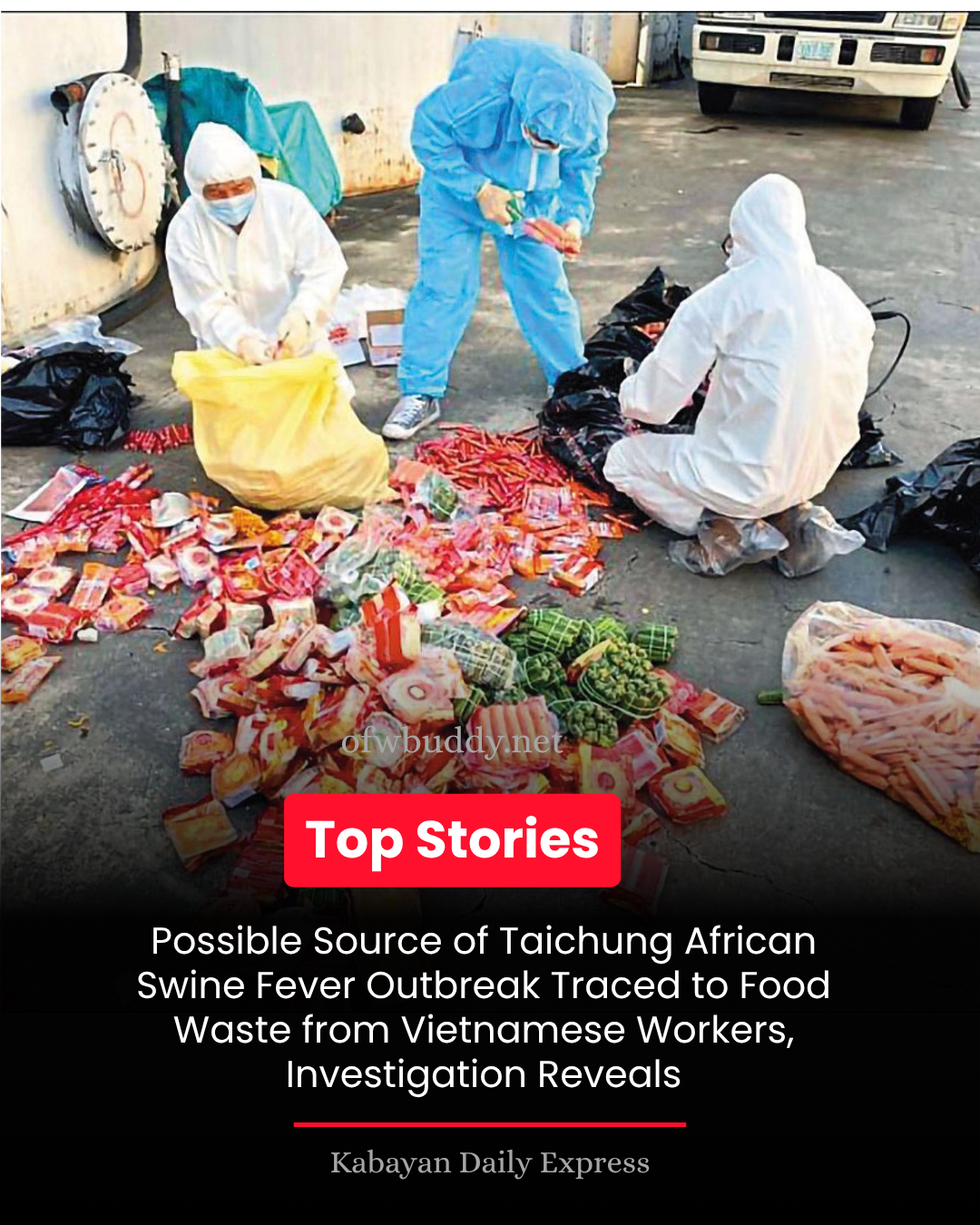Taichung, Taiwan (November 4, 2025)— Authorities have confirmed an outbreak of African swine fever (ASF) at a pig farm in Wuchi District, Taichung, sparking renewed concern over Taiwan’s biosecurity and food waste management. Investigators have traced the virus strain to origins in China and Vietnam, according to testing and DNA sequencing conducted by the Central Disaster Response Center.
Early findings suggest that improperly handled food waste may have been the source of infection. The farm, reportedly lacking essential sanitation and temperature control equipment, relied only on firewood to cook food scraps, without maintaining consistent records of cooking temperatures or waste sources. Mirror Weekly revealed that the pig farmers were unable to clearly identify where their food waste came from, raising suspicions that some of it originated from meat products consumed by Vietnamese migrant workers in nearby areas.
Investigators now suspect that contaminated kitchen waste — potentially containing virus traces from imported or illegal pork products — led to the outbreak. They are also probing possible falsification of food waste treatment records and the use of substandard veterinary medications. Legal experts say document forgery and negligence charges are being considered.
At a press briefing, National Taiwan University professor Tsai Hsiang-jung noted that the epidemiological investigation uncovered multiple sources of kitchen waste. “The waste did not only come from the cleaning team but also from neighbors and even from the pig farmers themselves,” he said. Local residents corroborated this account, telling reporters that the Chen family, who managed the farm, collected waste “from various places, including homes of Vietnamese workers.”
The Taichung District Prosecutors Office has launched a separate investigation into the case, focusing on potential violations of waste management and livestock regulations.
The outbreak began in September and continued through late October. Shockingly, no city government veterinarians were dispatched during the early stages of the crisis. Officials later claimed that “the central alert system had not been activated,” drawing criticism for what has been described as a passive and negligent response.
By October 30, nearly 100 personnel — including members of the military and chemical warfare units — were deployed to disinfect the affected area. The Central Disaster Response Center had planned a third round of sampling on November 3, but the process was disrupted when Taichung City personnel entered the site unannounced to conduct additional disinfection.
Officials from the Agriculture Agency expressed frustration, warning that premature disinfection could interfere with test accuracy. As a result, the third sampling was postponed. The Taichung City Government later explained that staff from the Animal Protection Office had “misunderstood instructions” and acted without proper authorization.
The series of missteps has prompted strong criticism from agricultural experts, who fear that the mishandling of this case could jeopardize Taiwan’s standing as one of the few “swine disease-free” countries in the region. If containment efforts fail, the outbreak could have lasting consequences for the nation’s livestock industry and export reputation.

